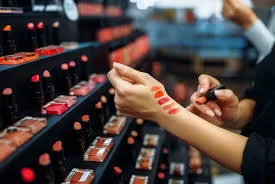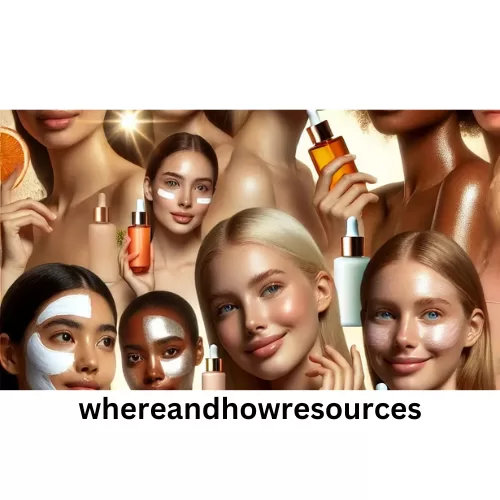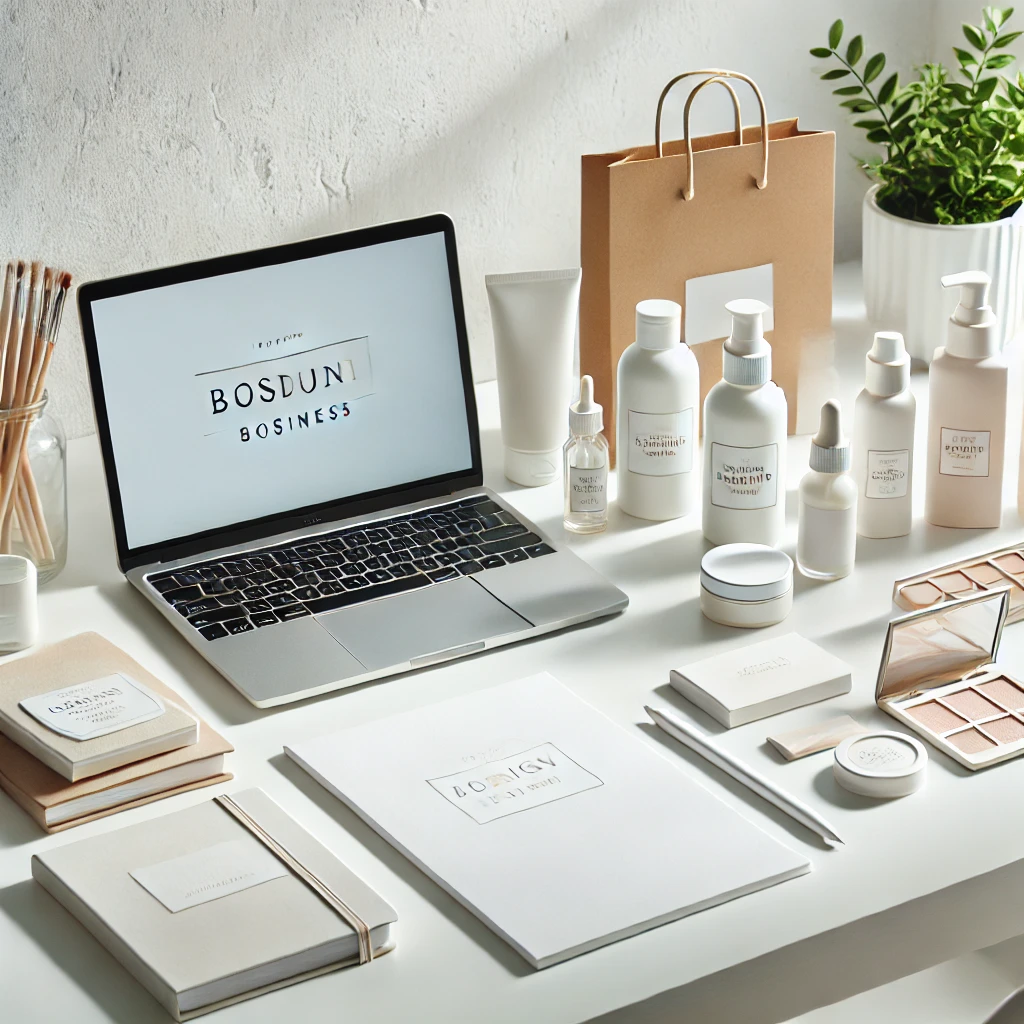Starting a Cosmetics Business: Opportunities & Challenges
Start a cosmetics business

The beauty industry is booming, with the global cosmetics market expected to reach $560 billion by 2030. With the rise of indie brands, organic beauty, and personalized skincare, launching your own cosmetics business might seem like a golden opportunity.
But while the idea is exciting, many new entrepreneurs underestimate the costs, legal requirements, and competitive landscape. So, should you start a cosmetics business—or reconsider? This guide breaks down the essential steps, potential roadblocks, and reasons it may not be the right path for you.
1. Understanding the Cosmetics Industry
Market Trends & Demand
Before diving in, analyze current beauty trends:
Clean Beauty: Consumers want non-toxic, cruelty-free, and eco-friendly products.
Personalized Skincare: AI-driven and DNA-based beauty products are on the rise.
Sustainable Packaging: Brands using recyclable or refillable packaging attract more customers.
Competition & Brand Differentiation
The market is highly competitive, with major players like L’Oréal, Estée Lauder, and Fenty Beauty dominating. New brands need a unique selling point (USP)—whether it’s affordable luxury, clean formulas, or high-tech ingredients.
💬 Lisa Graham, Beauty Brand Consultant
“Differentiation is the biggest challenge. Ask yourself: ‘Why would someone buy from me instead of Sephora or Amazon?’ If you don’t have a strong answer, rethink your strategy.”
2. Steps to Start a Cosmetics Business
Step 1: Research & Product Development
Before launching, decide on:
✅ Niche: Skincare, makeup, haircare, or fragrance?
✅ Target Audience: Who are you selling to? Millennials, Gen Z, or professionals?
✅ Formulation: Will you create custom formulas or use private label manufacturers?
💡 Pro Tip: Consider working with a cosmetic chemist or a third-party manufacturer to ensure product safety and effectiveness.
🔹 Recommended Ingredients for Skincare Brands:
- Hyaluronic Acid – Key for deep hydration.
- Niacinamide – Helps with brightening and acne control.
- Ceramides – Supports the skin barrier.
- Vitamin C – A powerful antioxidant for glow.
Step 2: Legal Requirements & Regulations
Cosmetics must comply with strict regulations, including:
FDA (U.S.) or EU Cosmetics Regulations for ingredient safety.
Trademarks & Patents to protect your brand name and formulas.
Labeling Requirements, including INCI ingredient lists and expiration dates.
💬 Dr. Sarah Tan, Board-Certified Dermatologist
“The rise of skincare entrepreneurship is exciting, but founders should ensure ingredient safety, stability, and efficacy before launching. Too many brands prioritize marketing over science.”
💡 Pro Tip: Consult a cosmetic regulatory consultant to avoid costly legal mistakes.
Step 3: Sourcing & Manufacturing
Choose between:
DIY Formulations: Creating products yourself (good for small batches).
Private Labeling: Buying pre-made formulas and branding them as your own.
Custom Manufacturing: Working with labs to create unique products.
💬 Mark Reynolds, Cosmetic Chemist
“Many startups underestimate the cost of R&D, product stability testing, and regulatory compliance. Even ‘all-natural’ formulas require rigorous testing to ensure shelf stability and safety.”
🔹 Best Private Label Manufacturers for Startups:
- Blossom Beauty Labs (USA) – Specializes in organic skincare and makeup.
- Radical Formulas (EU) – Offers vegan and cruelty-free cosmetics.
- Cosmetix Co. (Asia) – Affordable bulk K-Beauty formulations.
Step 4: Branding & Packaging
Your brand should have:
A strong name & logo that reflects your values.
Luxury or eco-friendly packaging to attract buyers.
A clear mission statement (e.g., vegan, dermatologist-approved).
💡 Pro Tip: Invest in social media branding to build trust and attract customers.
Step 5: Selling & Marketing Your Products
E-commerce: Sell on Shopify, Amazon, or Etsy.
Social Media: Instagram, TikTok, and YouTube are key for beauty brands.
Retail Partnerships: Get your products into beauty stores like Sephora or Ulta.
Best Platforms for Selling Online:
- Shopify – Best e-commerce platform for beauty brands.
- Instagram & TikTok – Key for beauty marketing.
- Printful – For branded beauty merch like bags & t-shirts.

3. Challenges & Reasons NOT to Start a Cosmetics Business
High Startup Costs
💰 Developing custom formulations can cost $5,000 – $30,000 per product. Plus, you’ll need to budget for:
- Packaging & branding: $3,000+
- Testing & compliance: $2,000 – $10,000
- Marketing & influencers: $5,000+
Maybe Start small with private-label products before scaling.
💡 Solution: Start Small with Private-Label Products Before Scaling
If you’re new to the cosmetics industry, private-label manufacturing is the easiest and most cost-effective way to launch. Instead of spending thousands on custom formulations, you can partner with a manufacturer that offers ready-made, high-quality products that you can brand as your own.
✅ Benefits of Private Labeling:
Lower Startup Costs – No need for expensive R&D or stability testing.
Faster Time to Market – Launch your brand within weeks instead of years.
Test Demand – See if your products sell before committing to custom formulations.
Scalability – As your business grows, you can invest in custom formulations.
🔹 Best Private-Label Manufacturers for Cosmetics Startups
🧴 Skincare & Facial Care
RainShadow Labs (USA) – Organic, cruelty-free skincare including serums, cleansers, and moisturizers.
BPI Labs (USA) – Specializes in anti-aging and acne skincare with dermatologist-approved formulas.
Radical Formulas (EU) – Offers vegan, EU-compliant skincare with active ingredients like niacinamide and vitamin C.
💄 Makeup & Color Cosmetics
Lady Burd (USA) – Offers lipsticks, eyeshadows, and highlighters with premium ingredients.
Audrey Morris (Canada & USA) – Customizable foundation, blush, and eye products.
Cosmax (Korea & Global) – Leading K-Beauty supplier for BB creams, cushion compacts, and lip tints.
🛀 Body & Hair Care
Tropical Labs (USA) – Body butters, exfoliants, and bath products made from natural ingredients.
Genesis Private Label (USA) – Offers shampoos, conditioners, and hair serums for different hair types.
Mansfield-King (USA) – Focuses on men’s grooming products, including beard oils and styling gels.
🛍️ How to Start with Private Labeling
1️⃣ Pick Your Niche – Skincare? Makeup? Haircare? Choose a category that aligns with your brand.
2️⃣ Research & Compare Manufacturers – Look at MOQs (Minimum Order Quantities), pricing, and formulations.
3️⃣ Request Samples – Always test products before committing to a bulk order.
4️⃣ Customize & Brand – Add your logo, packaging, and marketing story.
5️⃣ Launch & Sell – Use Instagram, TikTok, and Shopify to reach customers.
💡 Pro Tip: Many private-label manufacturers offer low MOQs (100-500 units per product), making it easy to test your market before scaling up.

How to Score Free Makeup Samples: A Comprehensive Guide
Free Makeup Samples: A Step-by-Step Guide to Score Them Are you a makeup lover on a budget? Look no further! In this guide, we’ll show you how to score free makeup samples from your favorite brands. From signing up for newsletters to following beauty influencers, we’ve got all the tips and tricks you need to…
FAQs: Common Questions About Starting a Cosmetics Business
1. How much does it cost to start a cosmetics business?
Costs range from $5,000 (private label) to $100,000+ (custom formulations).
2. Do I need FDA approval to sell cosmetics?
No, but your products must be safe, properly labeled, and not make false claims.
3. Can I start a cosmetics business from home?
Yes, but you may need permits and proper sanitation practices.
4. What are the most profitable cosmetics products?
- Lipsticks & lip glosses
- Serums & anti-aging skincare
- Sustainable and clean beauty
- Men’s grooming products
Final Thoughts: Start a cosmetics business
Starting a cosmetics business can be highly rewarding, but it’s not for everyone. Whether you choose to launch a luxury skincare line, budget-friendly makeup brand, or sustainable beauty business, success depends on innovation, smart marketing, and strong financial planning.
Explore more articles like this @ Where And How Resources
Share This Article:
If you found this article helpful, don’t forget to share it with your friends and followers! Use the buttons below to easily spread the word on your favorite social media platforms. Sharing is caring!

